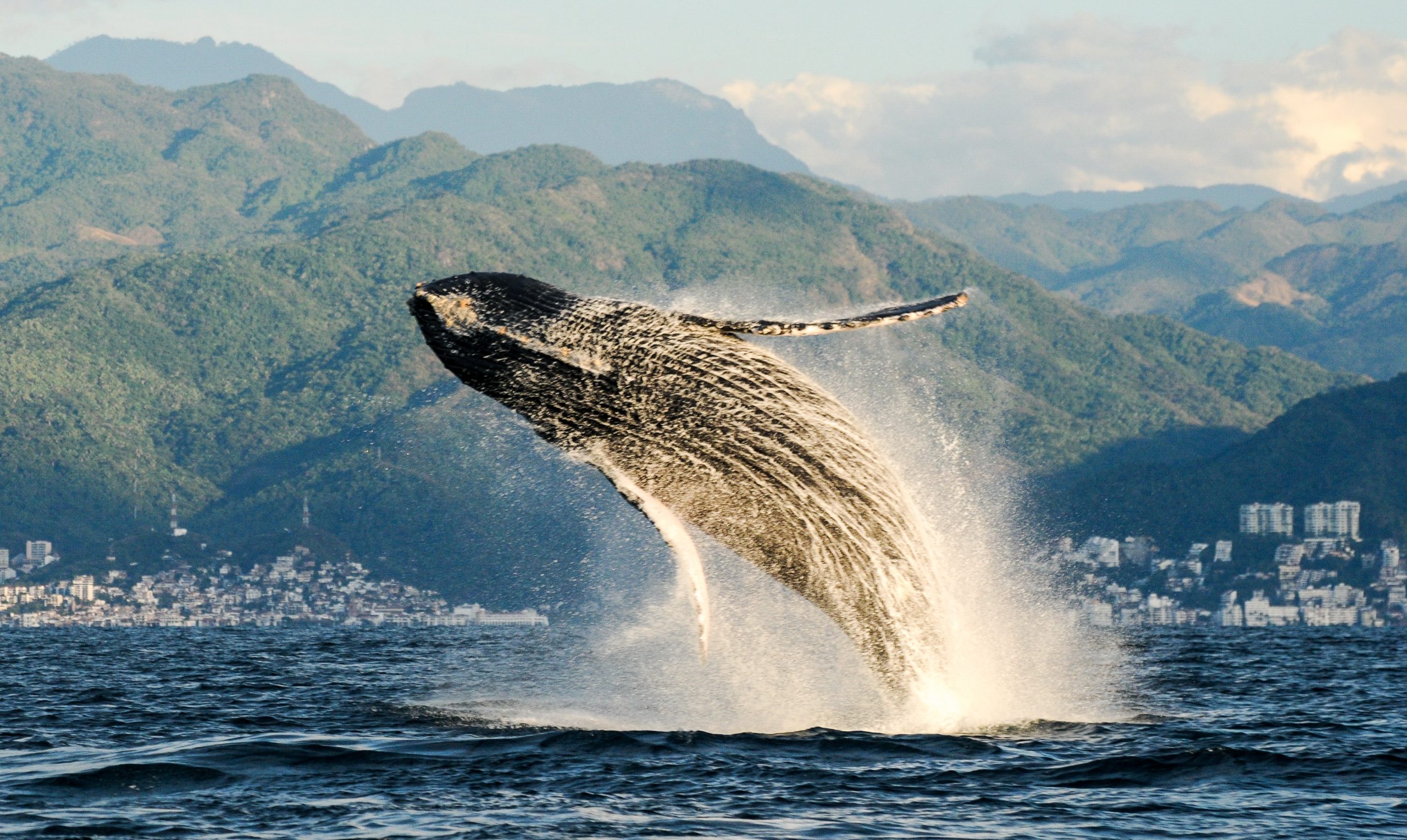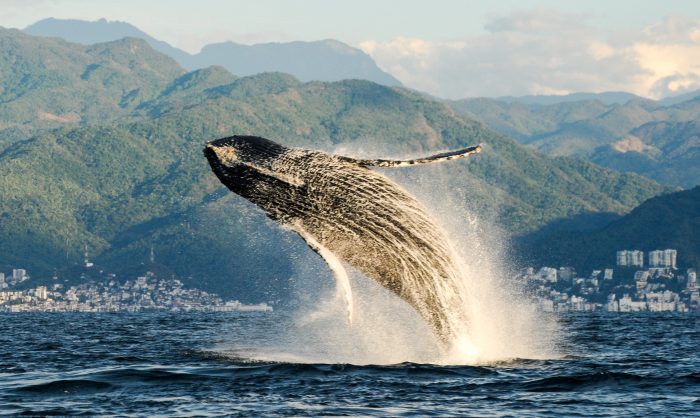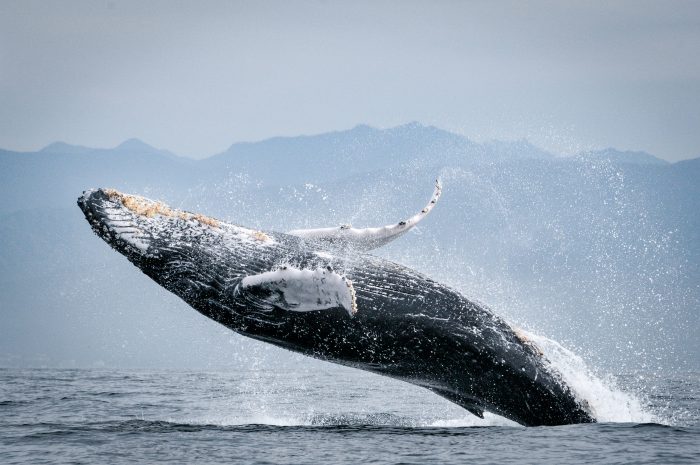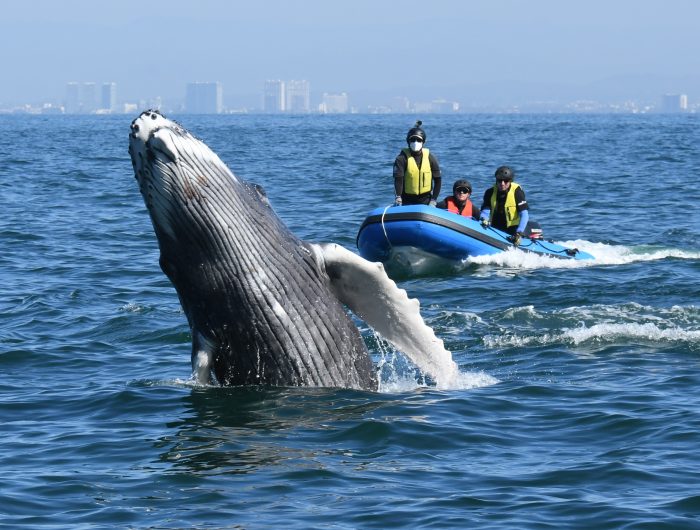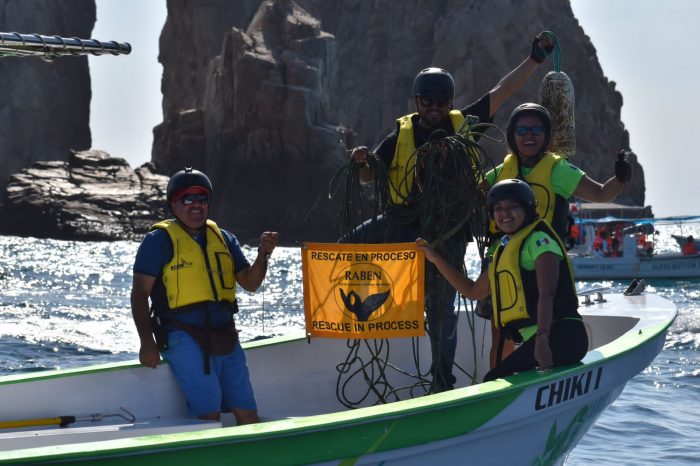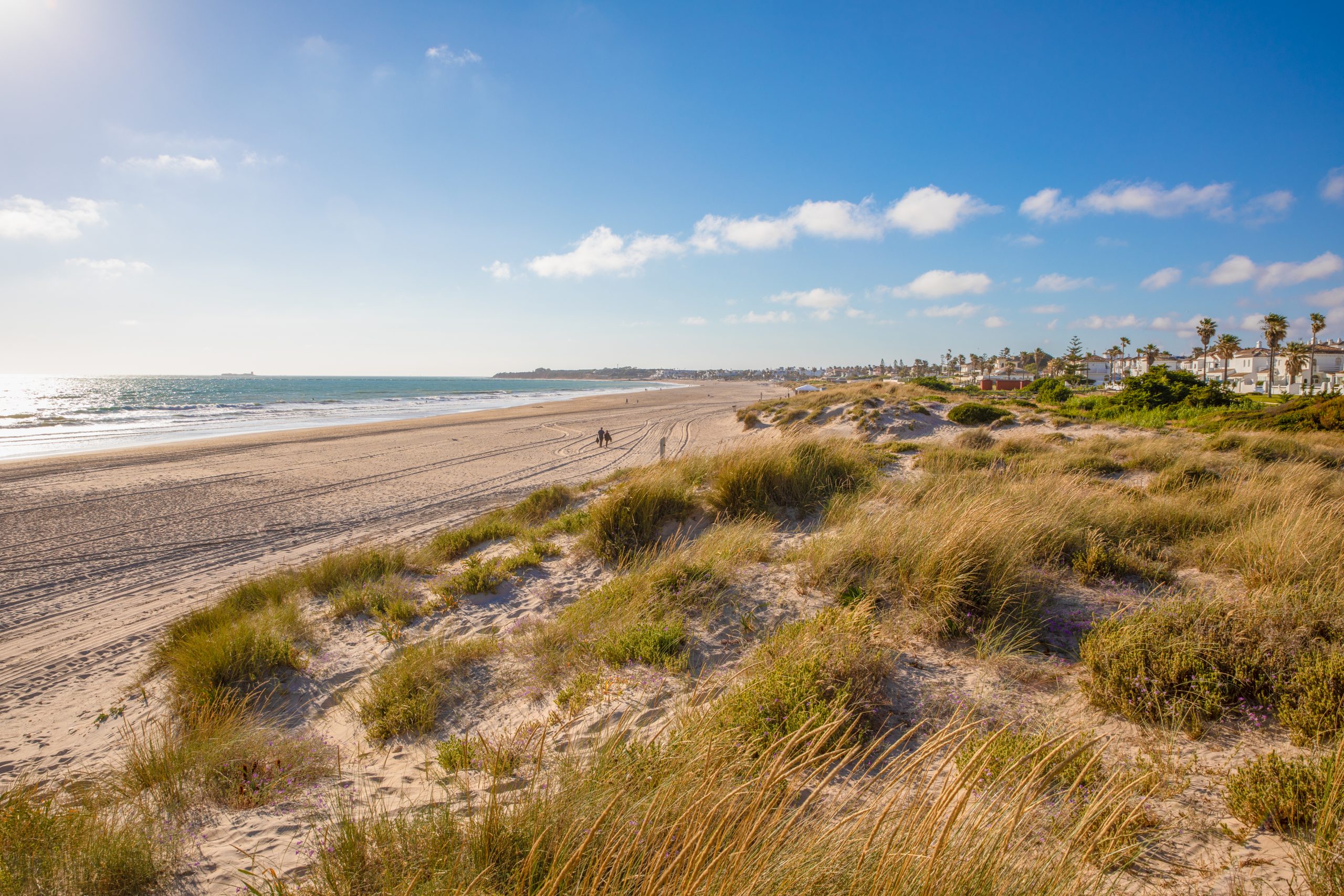Whale in sight! Whale-watching season is coming to an end
5 April, 2023Many whales migrate to the area of Los Cabos, Mazatlán and Vallarta, in Mexico, to give birth, taking advantage of the ideal conditions of the warm Mexican waters to raise their offspring until they are ready to continue their journey.
At RIU Hotels & Resorts, we want you to enjoy one of the most magical spectacles nature has to offer in a responsible way. That’s why we offer you a series of recommendations so that the natural habitat of these wonderful cetaceans remains unaffected and, therefore, so that you too can enjoy this spectacle as safely as possible.
To this end, we have partnered with ECOBAC (Ecología y Conservación de Ballenas A.C.), experts in whale protection on the Pacific coast of Mexico, to contribute our grain of sand to the important task of conserving the biodiversity of the area. This programme is aligned with the objectives of our CSR policy to support biodiversity.
One of their many commitments is to train tour operators so that they can carry out their guided tours responsibly, which is a very good option for a respectful visit.
If you are interested in ECOBAC’s work, read on and hurry up! If you are in Los Cabos and feel like a new and different experience, you are in luck! You still have time before this year’s humpback whale-watching season ends.
When is the best time to see whales?
Whale watching is one of the most spectacular natural attractions on the Mexican coast from December until well into April, although, depending on the area, dates may vary a little.
To make it a pleasant and unforgettable experience, it is advisable to follow a series of guidelines in order to avoid disturbing these gigantic mammals, as upsetting them could also be dangerous for our own safety.
It is important to try to keep an adequate distance. Mexican whale-watching regulations allow a minimum distance of 60 metres for authorised vessels and 240 metres for those without authorisation.
Also, it is obviously not advisable to go into the water or to throw any kind of waste into the sea, as it is highly dangerous for us and for animals.
In Bahía de Banderas, the whale-watching season has been over since March 23rd. There are still a few whales in the area but it is very important that if you go out to sea and are lucky enough to come across one, you do not follow it: you must let them rest so that they can continue their long migration.
How can we protect the whales?
At RIU we work together with the non-profit civil association ECOBAC, which supports the conservation of humpback whales and specialises in the rescue of whales entangled in fishing nets. This organisation provides training and tools to its rescue teams so that they can carry out these manoeuvres in the best possible conditions, as well as environmental education workshops.
ECOBAC also contributes to the research, protection and conservation of these marine giants and the ecosystems they inhabit.
The Bahía de Banderas team has already released more than twenty humpback whales since 2004. There are also teams in Los Cabos and Mazatlán, where they have been operating since 2012 and 2015 respectively.
What is the RABEN conservation project?
The Assistance Network for Entangled Whales (RABEN) was created in 2012, thanks to the support of Mexico’s National Commission for Protected Natural Areas (CONANP). In this project, which is coordinated nationally by ECOBAC, an inter-institutional team of people has been trained and is perfectly qualified to rescue whales that have become entangled in fishing nets.
Since it began its activity, RABEN has responded to more than 140 warnings and successfully released more than 80 whales. There are already fifteen trained teams made up of more than 180 members in the Mexican Pacific and the Baja California Peninsula.
We at RIU, aware of the scope and importance of RABEN’s mission, have undertaken this social investment to help with training in rescue manoeuvres, the purchase of the necessary tools for rescues and funding for advice to tour operators. We also provide a space in our hotels to hold a workshop on Large Whale Entanglement Events in Bahía de Banderas and Puerto Vallarta.
In short, you can’t miss this wonderful festival of nature which, as long as you do it responsibly, will be an unforgettable memory.
